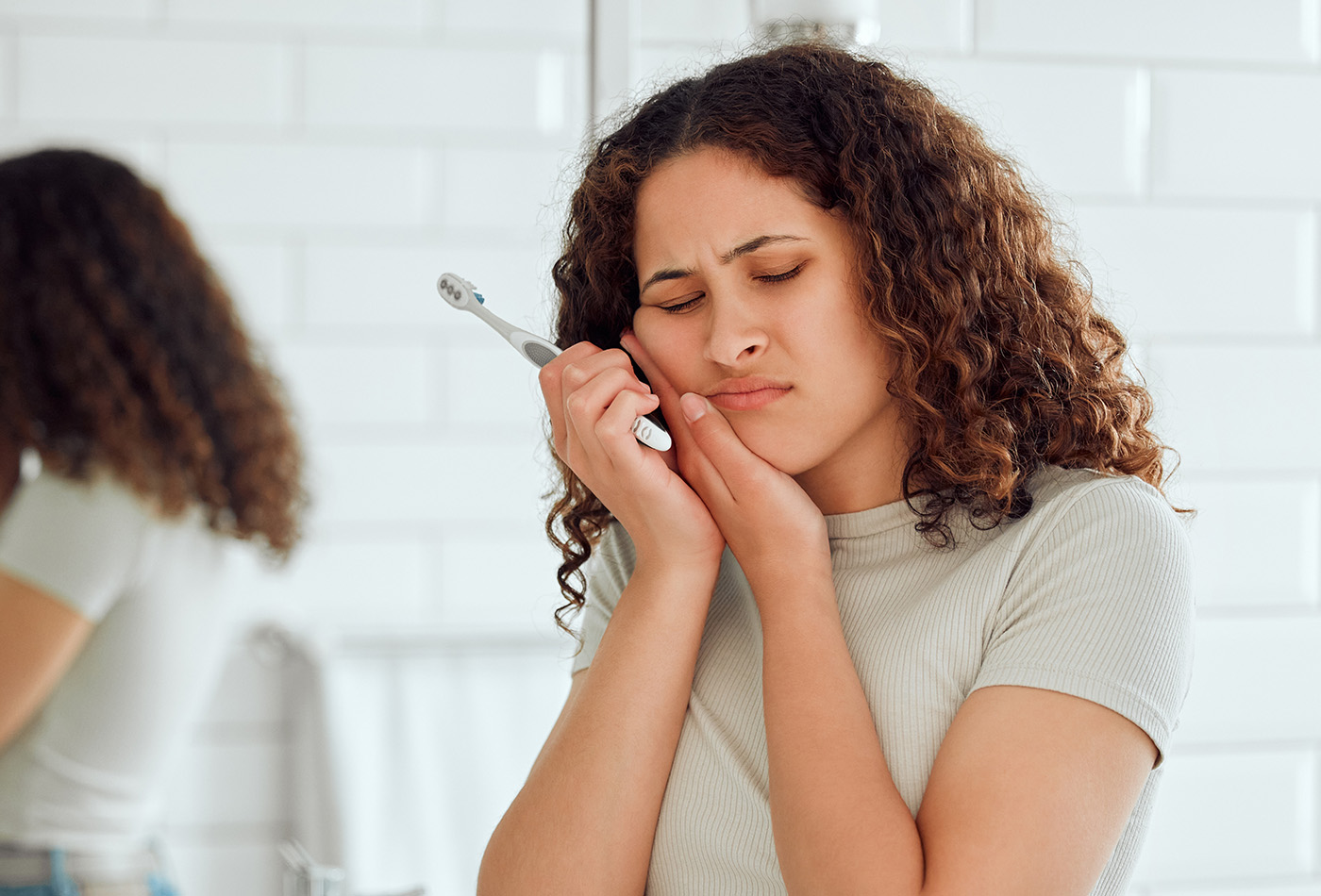
Why is My Tooth Sensitive After a Filling – Experts Explain
Biting into ice cream after a dental filling, you feel that jolt of sensitivity. It’s completely normal and pretty common. So, let’s dive straight into the big question: “Why is my tooth sensitive after a filling?” This article is your roadmap, leading you through the causes and management of this temporary tooth twinge. So, keep your spirits high, and let’s get cracking!
What is Tooth Sensitivity?
Tooth sensitivity, also known as dentin hypersensitivity, is a common dental problem that involves discomfort or pain in teeth when encountering certain substances and temperatures. It can occur when the enamel that protects your teeth gets thinner, or when gum recession occurs, exposing the underlying surface, the dentin. Or in this case, after a filling.
What is Dental Filling?
A filling is a dental procedure where decayed or damaged tooth material is removed and replaced with a restorative material like composite resin or amalgam. This helps restore the tooth’s shape, function, and strength while preventing additional decay.
Common Causes of Tooth Sensitivity After Filling
Tooth sensitivity after a dental filling can be quite common and is often temporary. Here are some common causes:
- Dental Filling and Nerve Irritation
During the dental filling procedure, the dentist removes decayed or damaged teeth, which can sometimes irritate the underlying nerves. This irritation can result in temporary tooth sensitivity.
- The Role of Temperature Sensitivity Post Filling
After a dental filling, it is common to experience increased sensitivity to temperature changes, especially cold substances. This sensitivity is due to the tooth’s reaction to the filling material and should subside over time.
- Influence of Bite Misalignment after Filling
In some cases, a dental filling can slightly alter the tooth’s shape, leading to bite misalignment. When the teeth do not align properly, it can cause tooth sensitivity, discomfort, and even pain. Adjustments may be necessary to restore proper alignment and alleviate sensitivity.
⇒ Maybe you’ll be interested: How to Prevent and Treat Sensitive Teeth after Whitening?
Other Potential Causes of Tooth Sensitivity After a Filling
There are several other potential causes of tooth sensitivity after a filling:
- The Impact of Dental Decay
If tooth decay is extensive, a deep filling may be required. In such cases, the tooth may experience heightened sensitivity due to the proximity of the filling to the nerves. Proper oral hygiene and regular dental visits can help prevent extensive decay and subsequent sensitivity.
- How Cracked or Broken Fillings Contribute to Sensitivity
Fillings that are cracked or damaged can expose the underlying tooth structure, making it more sensitive. To reduce sensitivity and stop subsequent issues, damaged fillings must be promptly replaced or repaired.
- Influence of Gum Recession
Gum recession, often caused by gum disease or aggressive brushing, can expose the tooth roots. If a filling is placed near the exposed roots, it can lead to heightened sensitivity. Addressing gum recession through proper oral hygiene and professional dental care can help alleviate sensitivity.
How Long Does Tooth Sensitivity Last After a Filling?
Tooth sensitivity after a filling is typically temporary and should subside within a few days to a couple of weeks as the tooth adjusts to the filling material and the nerves settle down. If sensitivity persists or worsens over time, it is important to consult your dentist for further evaluation.
How to Handle Tooth Sensitivity After a Filling
If the discomfort persists or is particularly troublesome, here are some steps you can take to handle tooth sensitivity:
At-Home Remedies for Tooth Sensitivity
There are several at-home remedies you can try to alleviate tooth sensitivity after a filling. These include using desensitizing toothpaste, avoiding extremely hot or cold foods, practicing proper oral hygiene, and using a soft-bristled toothbrush.
The efficacy of fluoride toothpaste for sensitive teeth was observed after 8 weeks of twice-daily use. However, the use of fluoride toothpaste needs to be followed the dentist’s advice correctly and in the right dosage to avoid harm to your teeth and health.
Professional Dental Solutions
In some cases, professional dental solutions may be necessary to address persistent tooth sensitivity. These may include dental sealants, fluoride treatments, or bonding to protect the exposed areas and reduce sensitivity.
When to Consult Your Dentist
If tooth sensitivity after a filling persists or becomes increasingly uncomfortable, it is important to schedule a follow-up appointment with your dentist. They can assess the situation, identify any underlying issues, and recommend appropriate treatment to alleviate the sensitivity.
Preventing Tooth Sensitivity With NYC Smiles
Tooth sensitivity after a filling is completely normal. By understanding “why is my tooth sensitive after a filling?” and following proper care guidelines, you can manage and prevent tooth sensitivity. At New York City Smiles, our expert dentists are dedicated to providing personalized solutions to address your dental concerns. Contact us now.
Source:
Dawson, T. (2012, May). Sensitive teeth: Causes, prevention and treatment. Dental Nursing, 8(5), 274–276. https://doi.org/10.12968/denn.2012.8.5.274
M. Damayanti, M., Yuniarti, Y., Caecielia, M., & N. Irasanti, S. (2022, December 27). The Effects of Oral Prophylaxis on Sensitive Teeth, Teeth Staining, and Bad Breath. KnE Life Sciences. https://doi.org/10.18502/kls.v7i5.12503
Yengopal, V., Harnekar, S. Y., Patel, N., & Siegfried, N. (2016, October 17). Dental fillings for the treatment of caries in the primary dentition. Cochrane Database of Systematic Reviews. https://doi.org/10.1002/14651858.cd004483.pub3